Part 42: Venice Part 6: Lombardia (1579-1642)
Venice Part 6: Lombardia (1579-1642)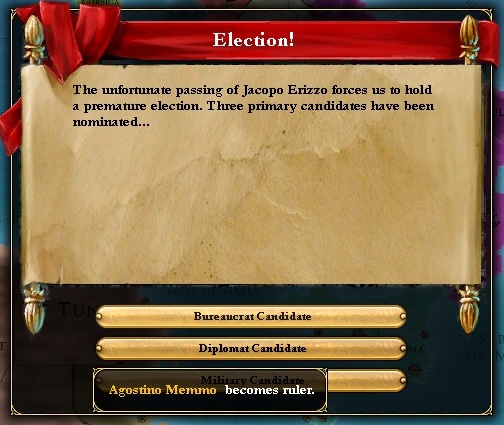
Jacopo Erizzo passes away in 1579 after 55 years in power. The council elects a bureaucrat by the name of Agostino Memmo to replace him.
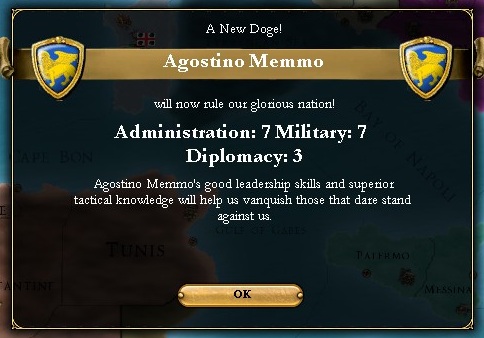
Doge Memmo displays great talent in the skills necessary to run a country and organize its army, but he lacks the personal appeal of Erizzo.
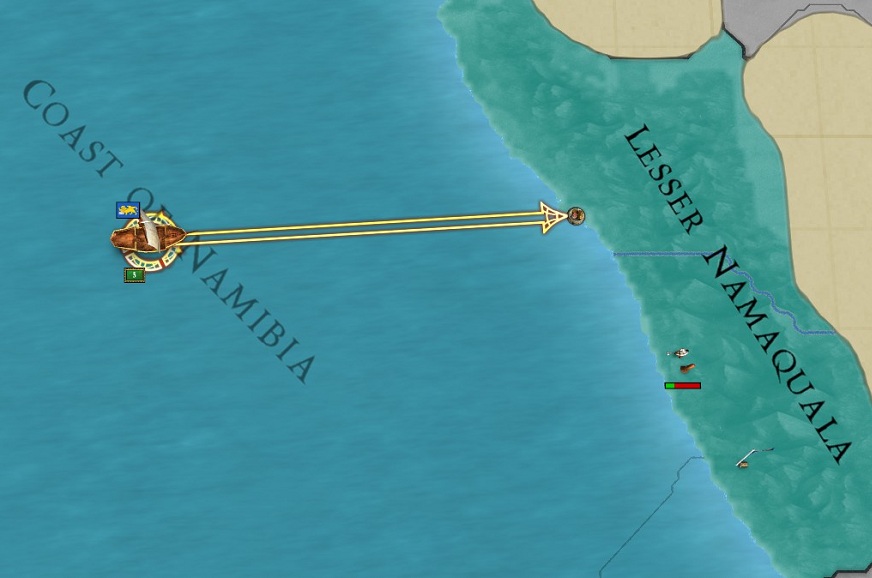
The explorer Cristoforo Foscolo remains busy charting new routes to the East Indies. A small colony established in South Africa as a resupply point for his fleet eventually grows to become a full-fledged settlement, and he often returns there between expeditions.
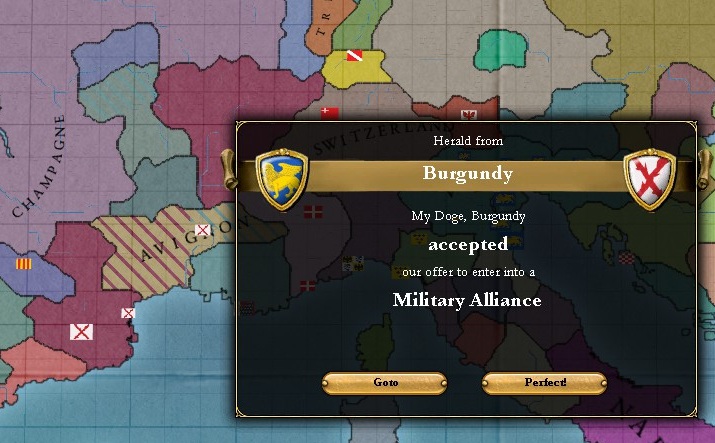
Doge Memmo sends an emissary to Burgundy to restore the historical alliance the two countries once shared.
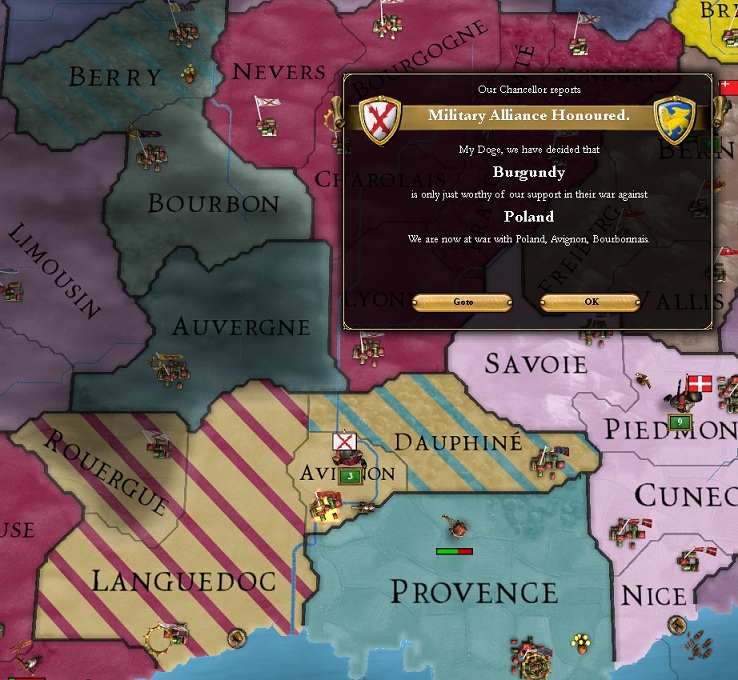
Burgundy immediately takes advantage of the military pact by requesting Venice's aid in battle against its nearby neighbors. Poland leads the resistance against the Burgundian reclamation, but their leadership seems to be largely ornamental as they remain in Eastern Europe completely isolated from the conflict.
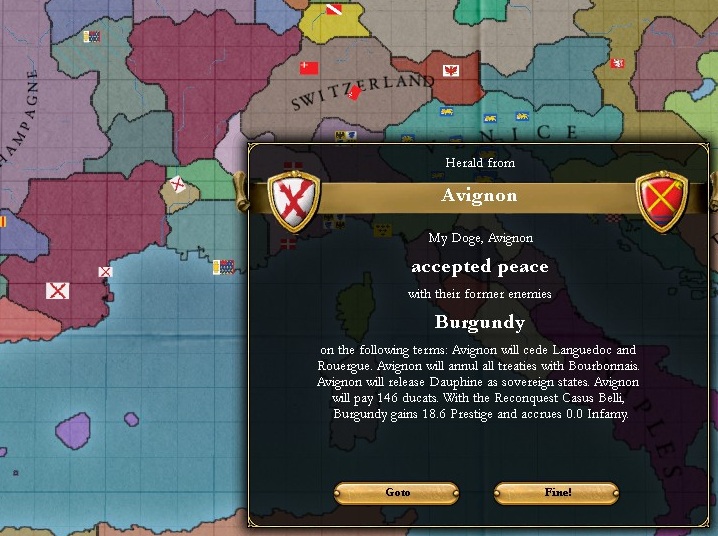
Burgundy succeeds in reclaiming a portion of its lost territory from Avignon, though their territory still remains partitioned into two halves.
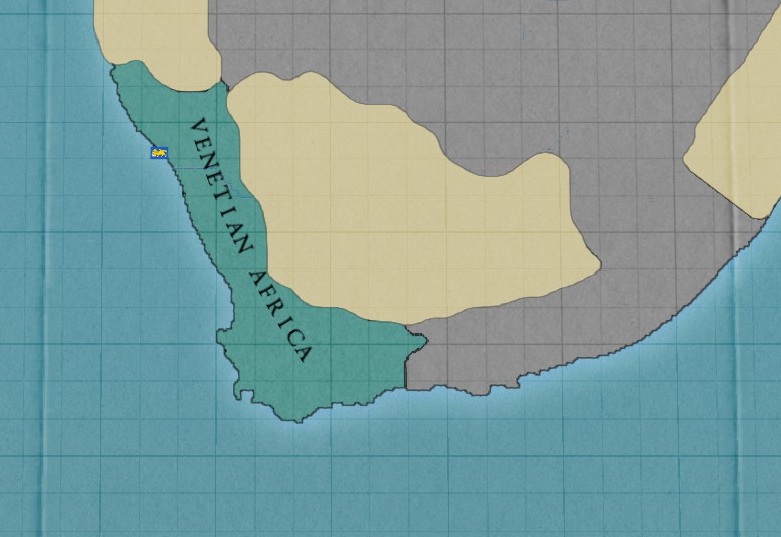
The Venetian presence in Africa continues to grow as the area becomes an important stop for journeys further to the east. By 1581, Venetian colonies spread to the cape.
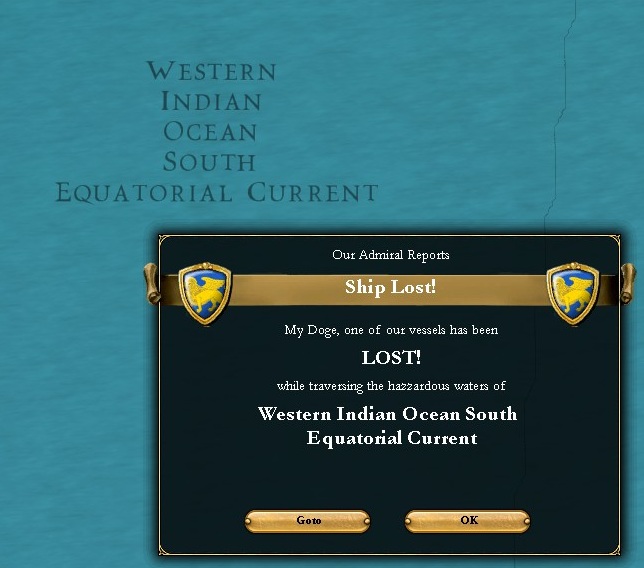
Later that year, Cristoforo's expedition leaves to chart an ambitious course through the middle of the Indian Ocean. They are never heard from again.
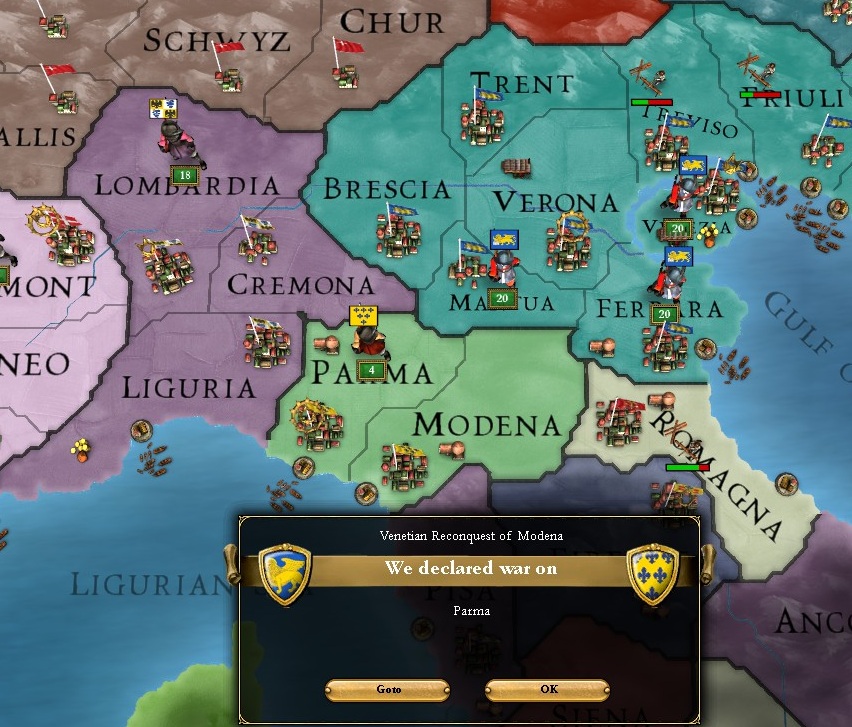
Back at home, tensions with Parma and the Papal States grow to a boiling point. Venice has disputed the ownership of Modena and Romagna for decades, and Doge Memmo is unwilling to allow those regions to remain outside of Venice's control any longer. War is declared on Parma and the Papal States in late 1582.
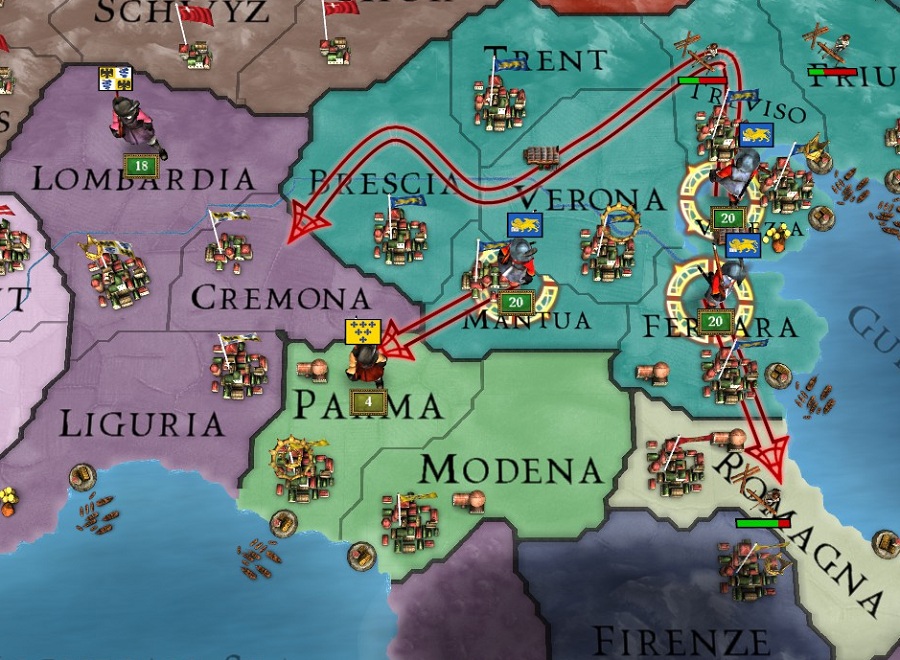
Milan, Florence, and the Holy Roman Emperor - the ruler of Hesse all join the two countries against the Venetian invasion. Venetian armies march against their Italian enemies all at once, in hopes of subduing them before Imperial armies arrive.
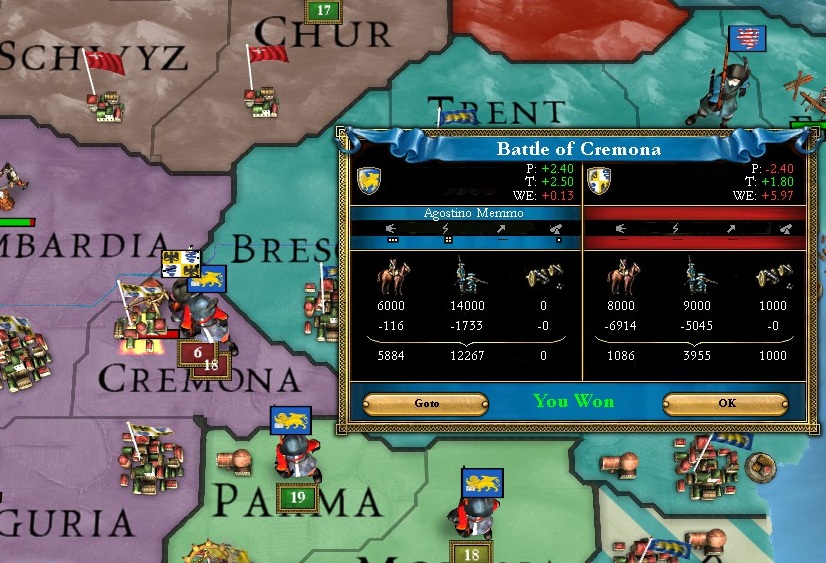
The Milanese army is met at Cremona and dealt a crushing defeat from which they can't recover.
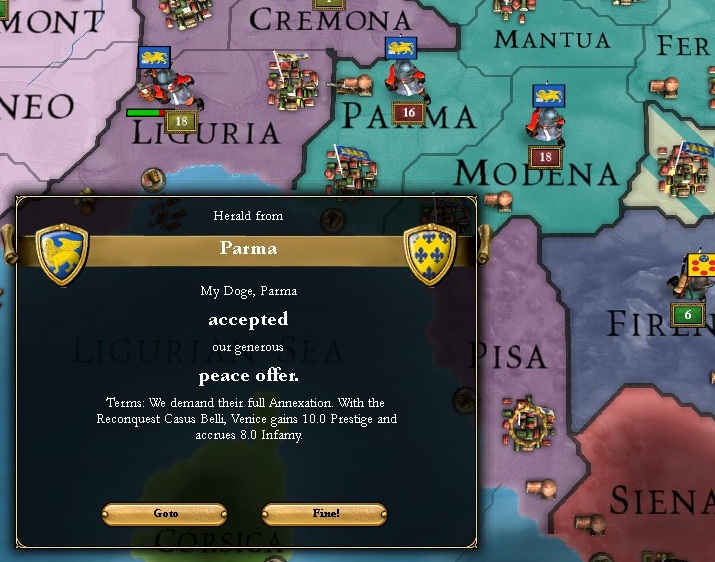
Parma's full annexation is demanded upon their defeat.
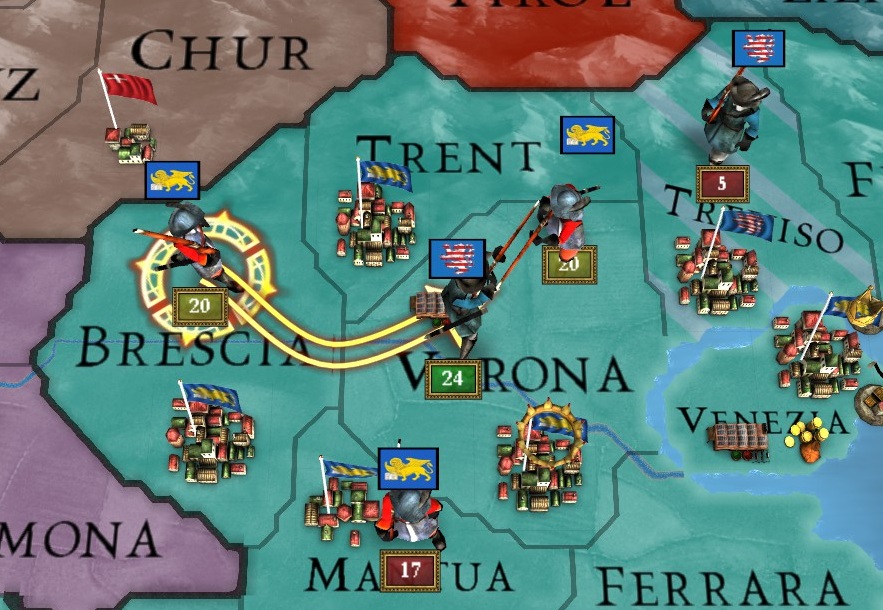
The occupation is Milan is not complete by the time the Imperial Hessen armies arrive. Luckily, their forces don't number as high as a Bavarian or Bohemian emperor's forces would have. They split their forces up to siege multiple Venetian cities, and the Venetian army combines to fight each separate invading force at at nearly a 3:1 advantage.
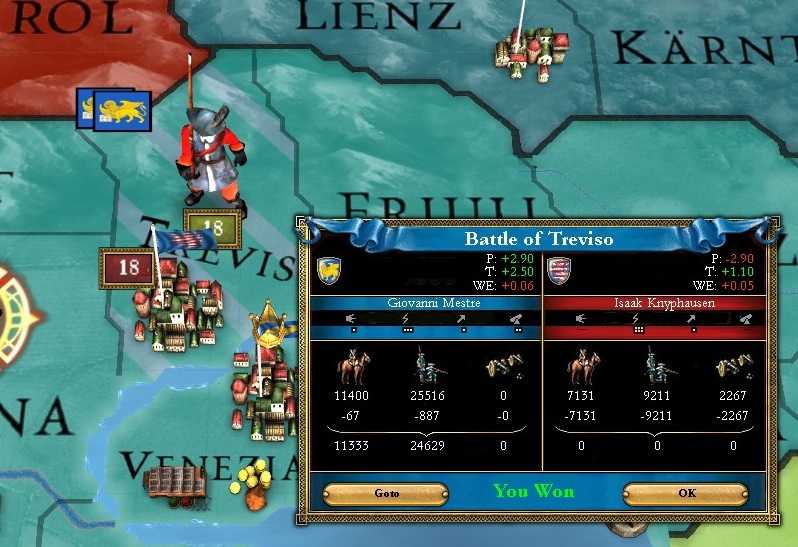
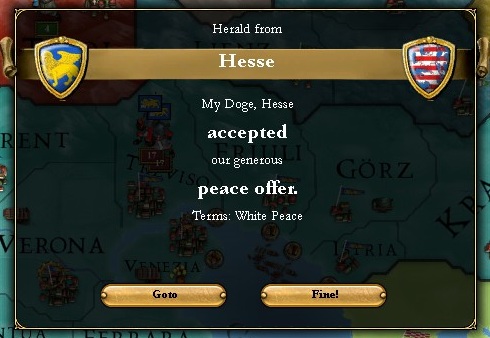
The Hessen armies are defeated at Treviso, forcing the emperor make peace.
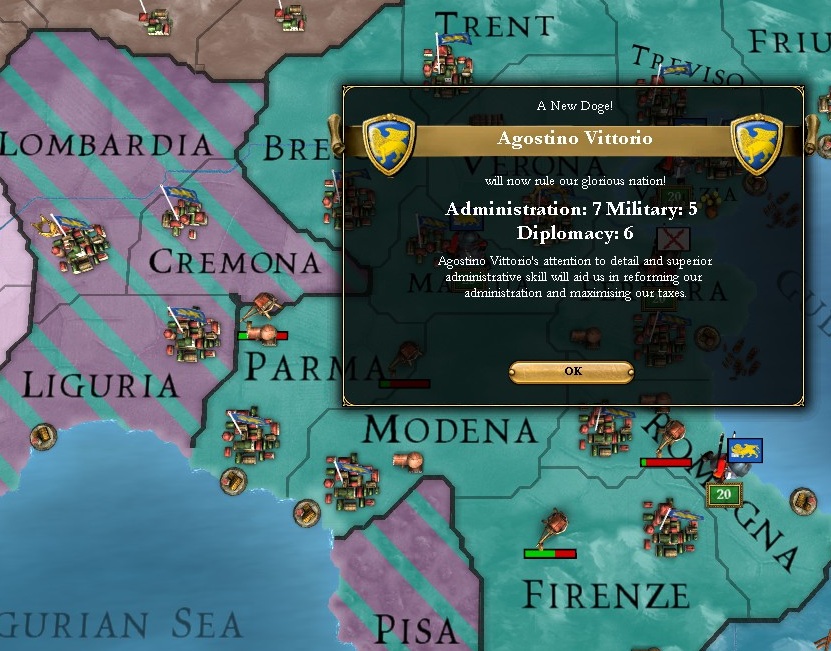
This leaves Venice free to occupy Milanese territory unopposed. After years of occupation, the Milanese are no longer willing to continue resistance and all of the Lombards are united under Venice-Savoy. A new Doge is electing during the occupation, as well. Doge Memmo's abrasive and uncompromising manner lost him support in the council despite his military success, and the more affable Agostino Vittorio is ushered in as his replacement.
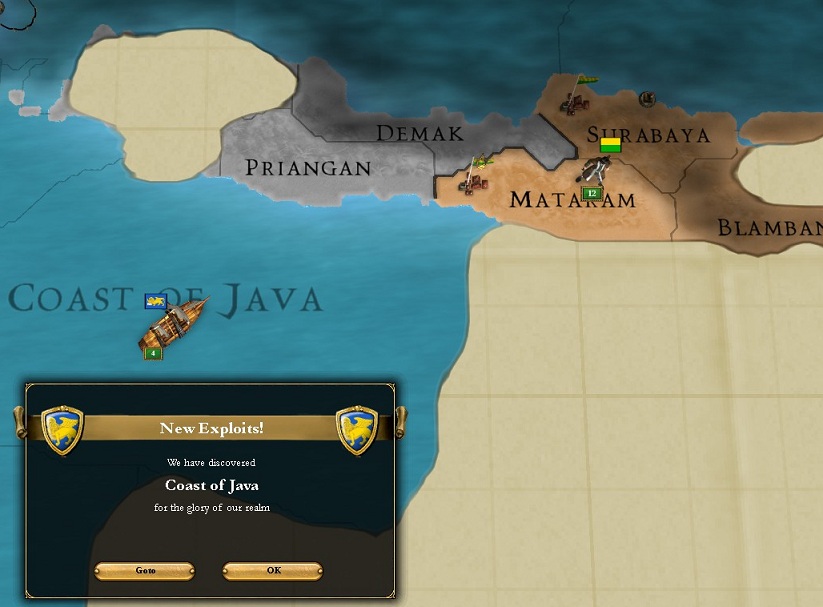
In 1592, the Venetian explorer Niccolo Barilla discovers the island of Java in the far east. The island contains wealthy resources that Venice could exploit and a native population that isn't entirely unfriendly. The local power of Mataram maintains a loose grip on nearly half of the island, and Venetian forces could easily subdue them.
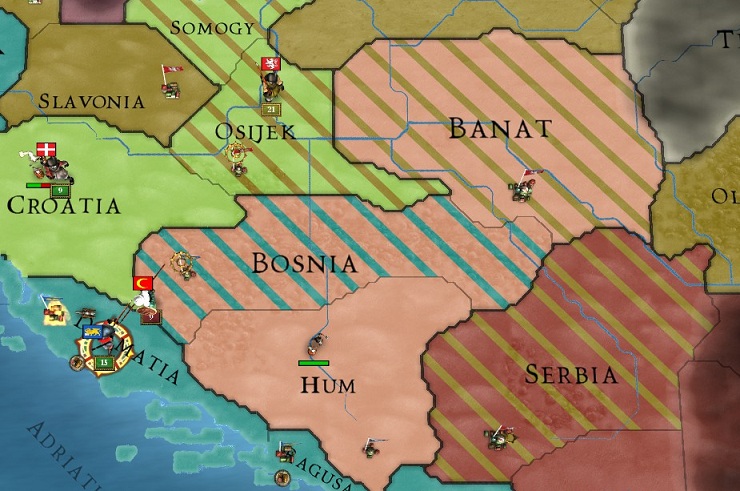
Bohemia launches a series of crusades against the Islamic powers of the Balkans beginning in the mid 1590s, taking land from Croatia, Bosnia, and Serbia.
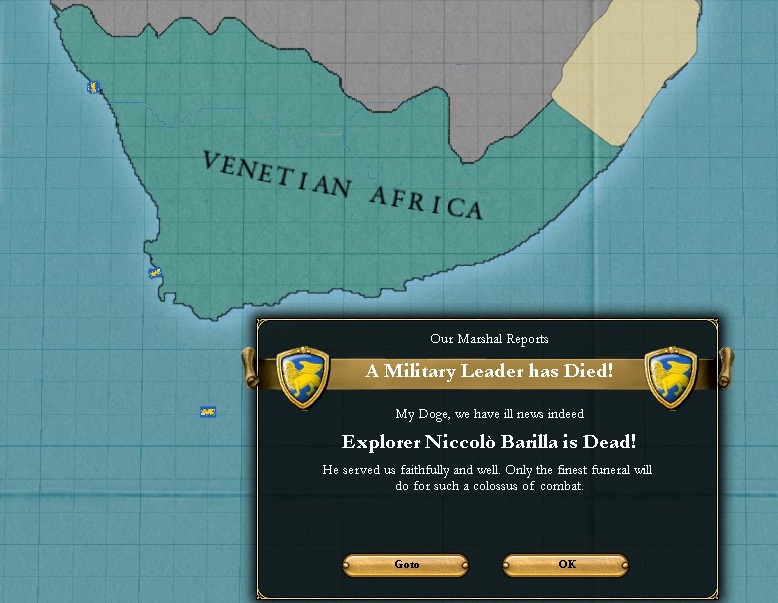
Venetian colonies span across the entirety of south Africa in 1591. The Explorer Niccolo had turned them into a second home between voyages to the east. He dies of illness during one such stop to re-provision before returning to Indonesia.
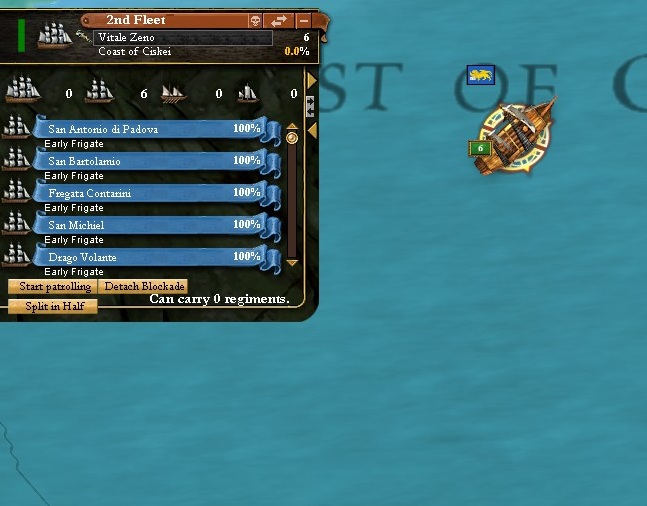
A young protege of his named Vitale Zeno is placed in charge of the eastern expeditions.
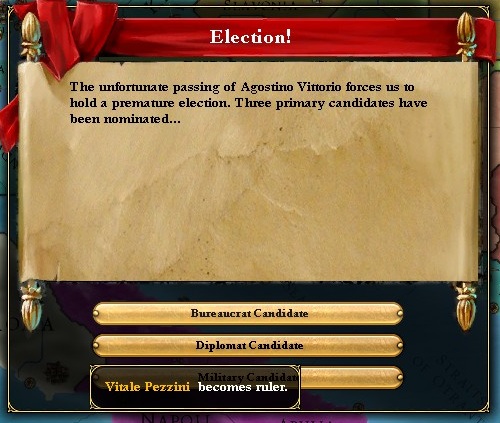
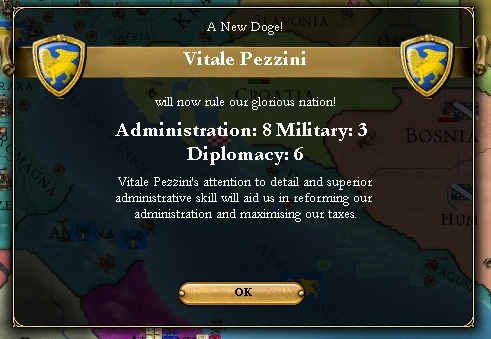
The talented Agostino Vittorio passes away suddenly in 1596 at a young age, much to the council's dismay. His replacement is a man named Vitale Pezzini. Doge Pezzini is a very serious and strikingly intelligent man, though much more timid than many of his predecessors.
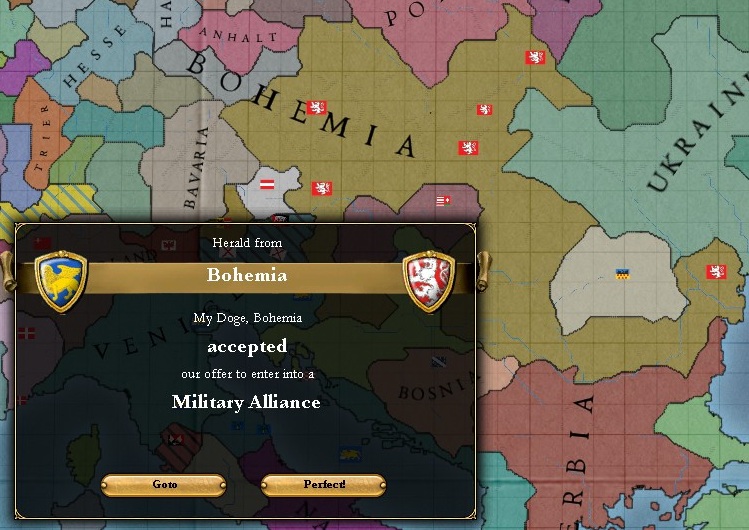
Bohemia had long been a friend to Venice, but previous attempts to formalize relations between the two countries had proved fruitless as the particulars of the treaties could never be agreed upon. Doge Pezzini surprises everyone when he successfully negotiates a military alliance with Bohemia. This provides Venice with two powerful allies: Burgandy to its northwest, and Bohemia to its northeast.
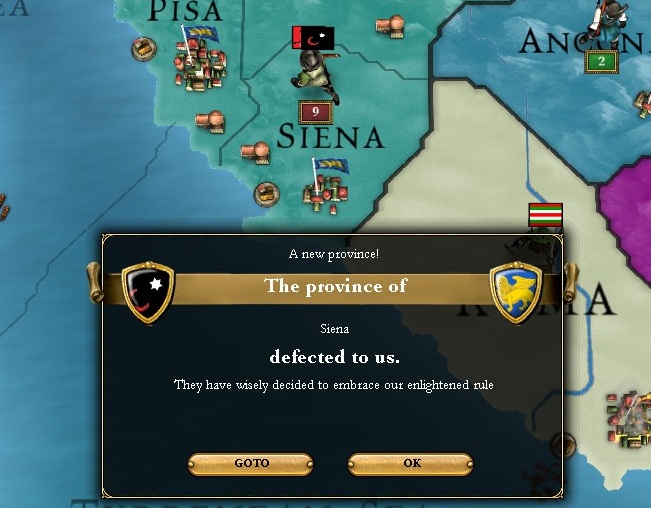
Siena had fallen to Seville in recent years, but its residents never truly accepted their rule. In 1598, they overthrow their occupiers completely and defect to Venice.
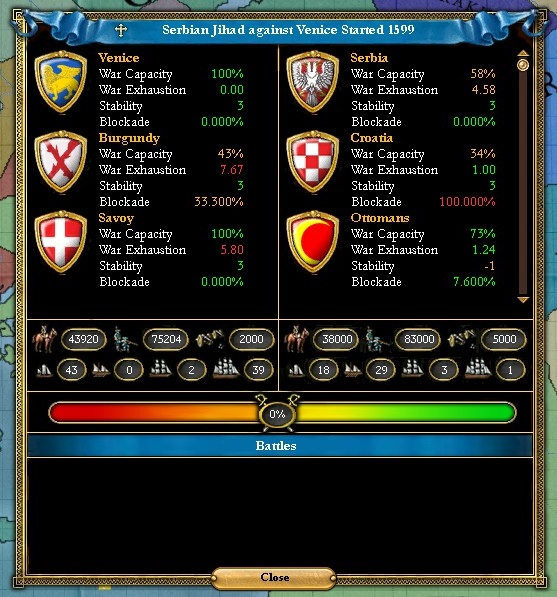
Serbia leads its allies in a crusade against Venice, in retaliation against Bohemia's incursions into the region. Bohemia is unable to come to our assistance as they are obligated to a truce with Serbia for several years to come.
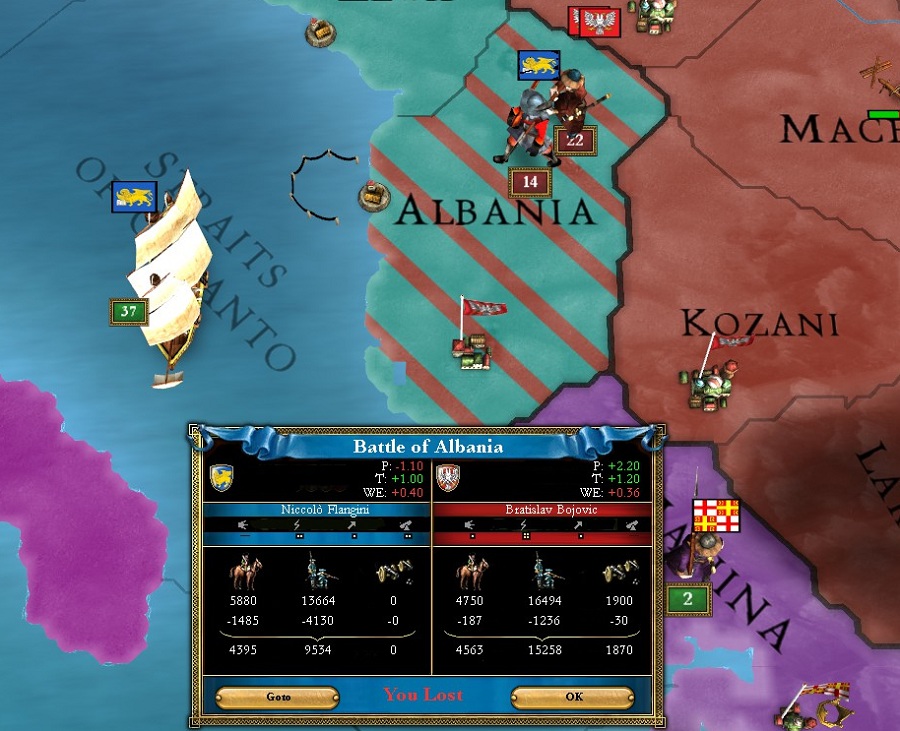
The Serbian army is under skilled leadership, and they turn back a Venetian army outside of Albania.
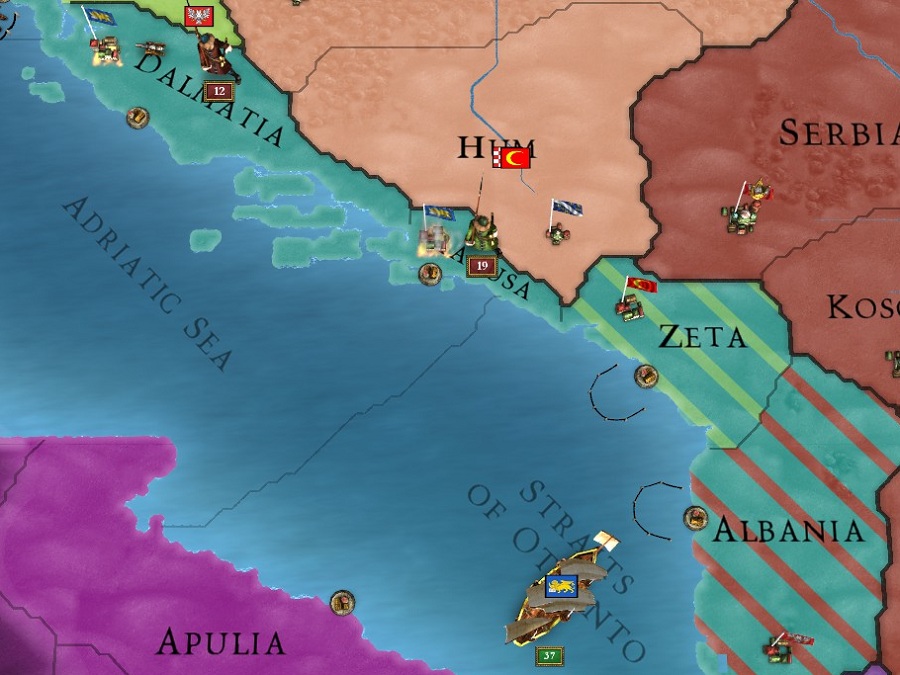
After routing Venice's eastern forces, enemy troops proceed up the Dalmatian coast unopposed.
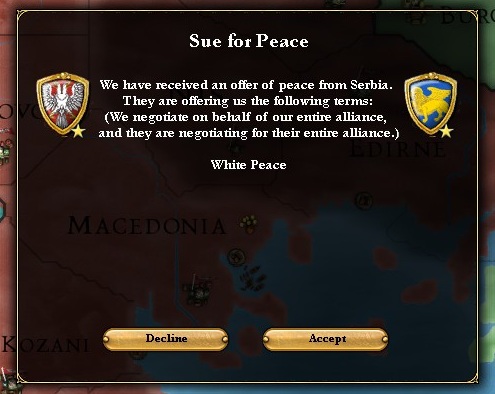
Doge Pezzini isn't interested in war with Serbia, but sends the entire Venetian army to Dalmatia to push back the approaching enemy. After recapturing occupied territory, he successfully negotiates a peace with Serbia and brings an end to the conflict.
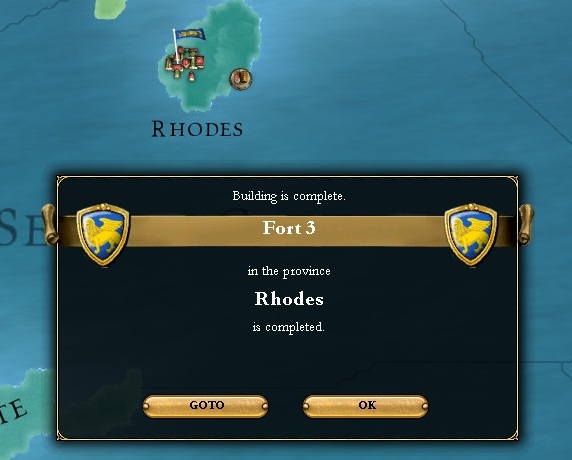
In response to the recent invasion, a large buildup of fortifications is ordered in Venice's distance holdings. The Mediterranean islands and the Dalmatian coast is strengthened with new walls, forts, and larger garrisons.
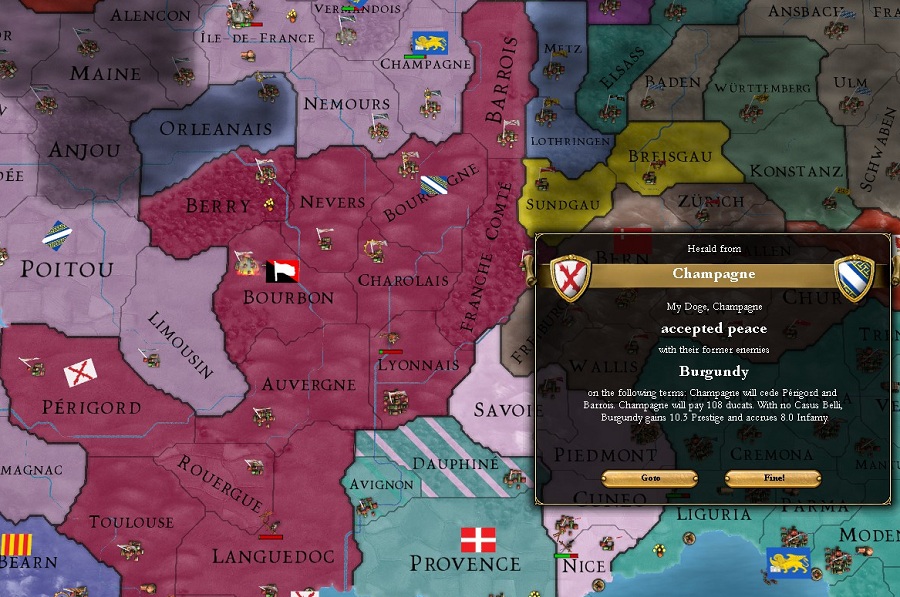
Burgundy annexes Auvergne and seizes additional territory from Champagne. This conquest finally re-links Burgundy's northern and southern holdings into a contiguous territory.
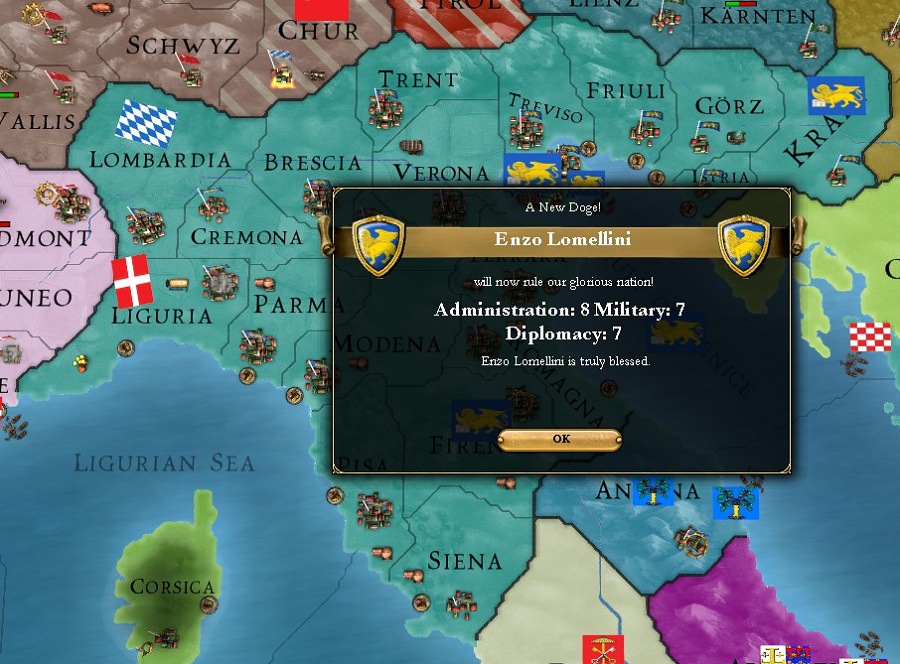
After nearly 20 years in power, Doge Pezzini loses re-election by a narrow margin in 1617. His replacement, Enzo Lomellini, is a brilliant man who proves to be exceptional in a wide variety of areas. Many scholars compare him to the much adored Doge Erizzo who ruled Venice for over half a century.
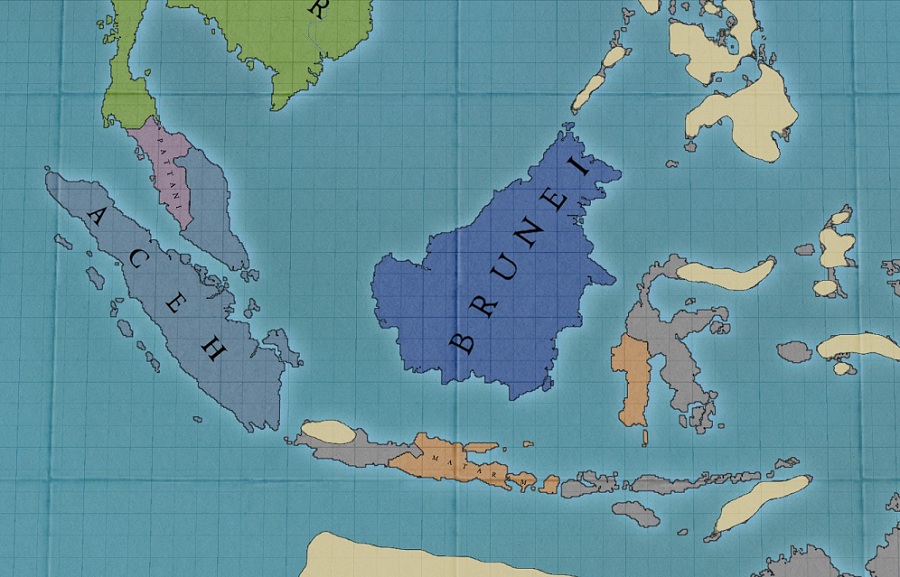
Venetian explorers have since mapped the islands of the east to a reasonable degree, and Doge Lomellini believes that it is time that Venice should bring these wealthy lands under Venetian control.
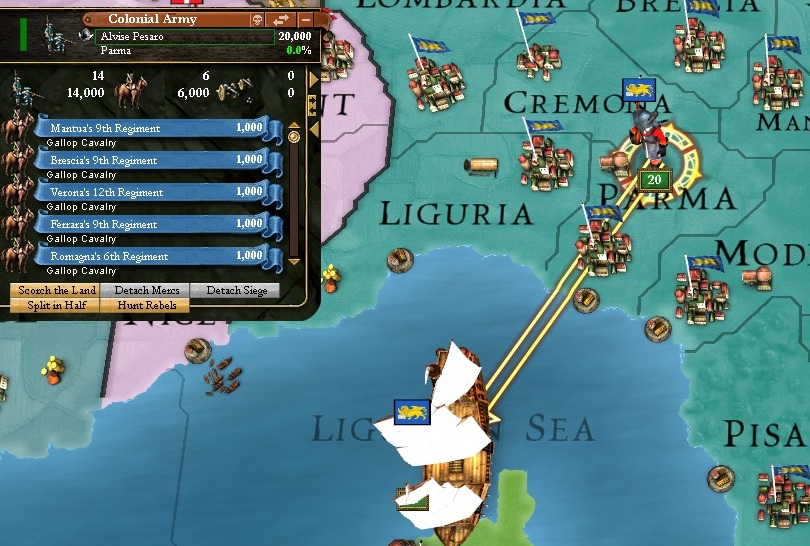
A formidable expedition is organized that consists of explorers, settlers, soldiers, an men of the cloth. Alvise Pesaro is charged with conquering the Mataram nation and preparing the island of Java to receive Venetian colonists.
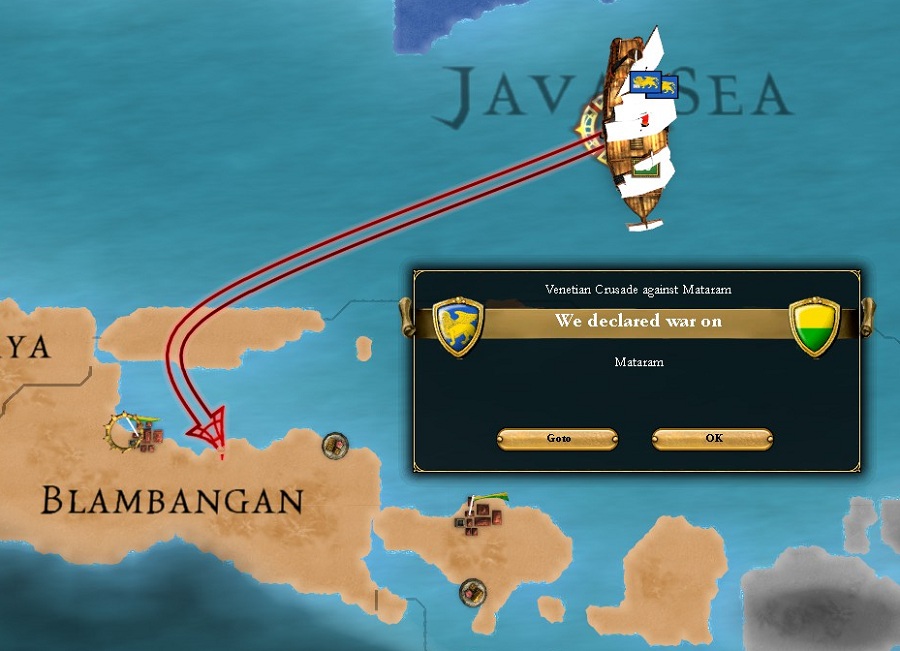
In 1625, Venetian ships loaded with men and supplies appear off of the coast of the Mataram nation, and Alvise begins his conquest.
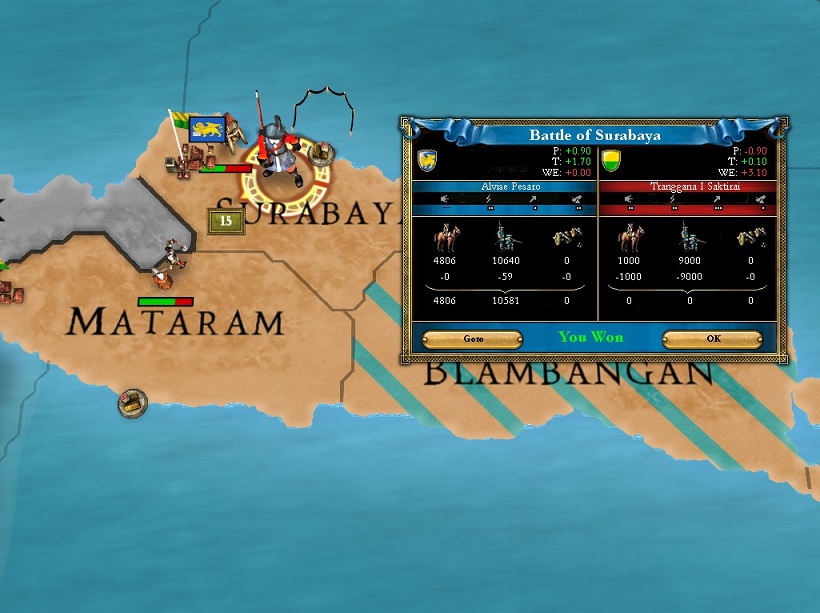
The Mataram army meets the Venetians at Surabaya. The firearms and modern military tactics of the Venetians are completely unknown to the Mataram, and their army is routed in a single major engagement.
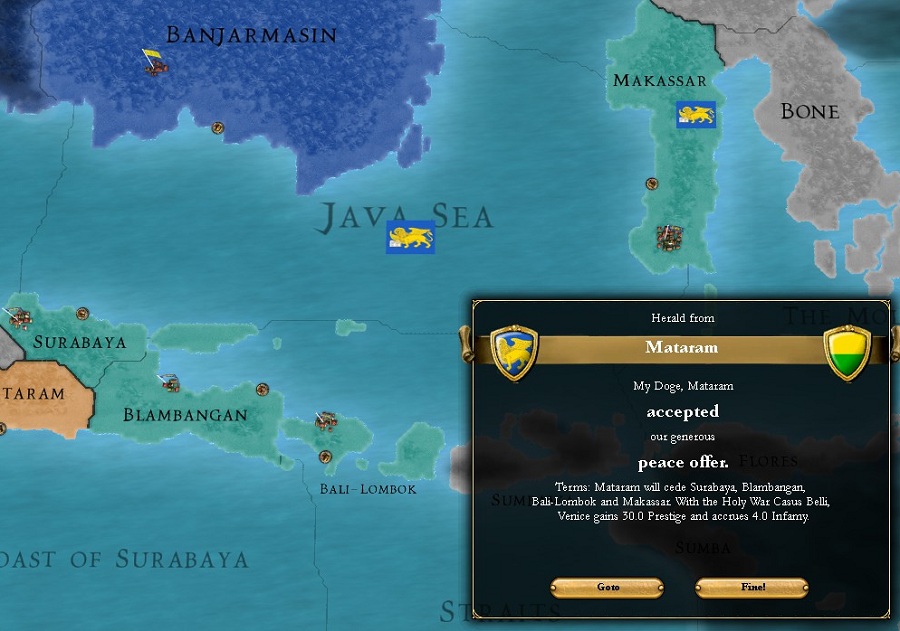
The first war against the Mataram is decisive. Their holdings are reduced to their capital city, and all other territories are ceded to Venice. Missionaries begin to convert local populations as settlers build roads, markets, housing, places of worship, and fortifications.
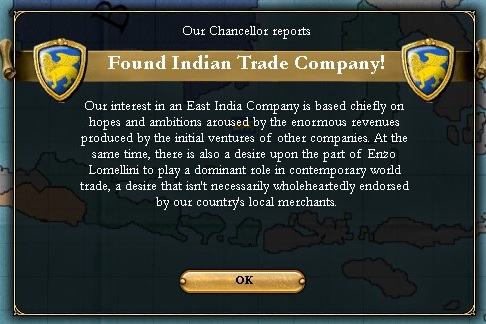
Doge Lomellini is instrumental in the beginning of a national trade company tasked with overseeing the production, shipment, and trade of valuable goods from the new colonies.
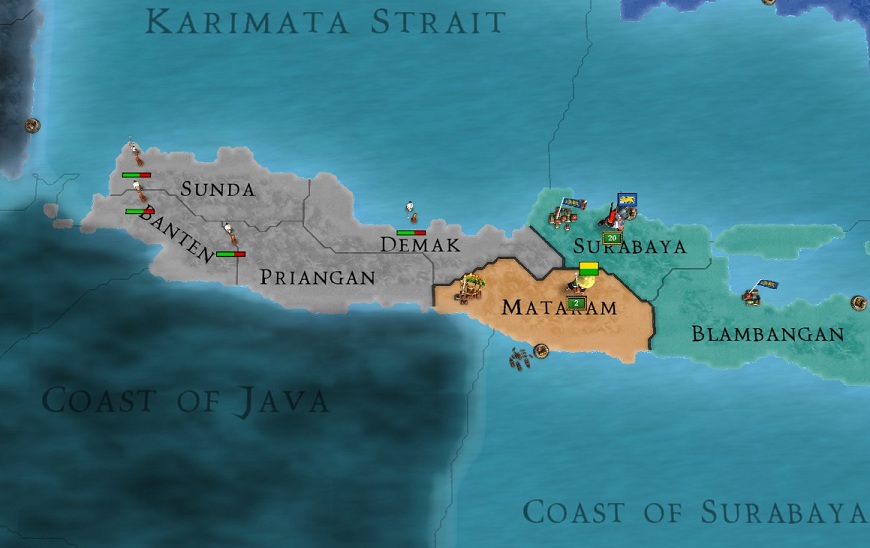
Colonists flock to Java as stories of its wealth spread across Venice.
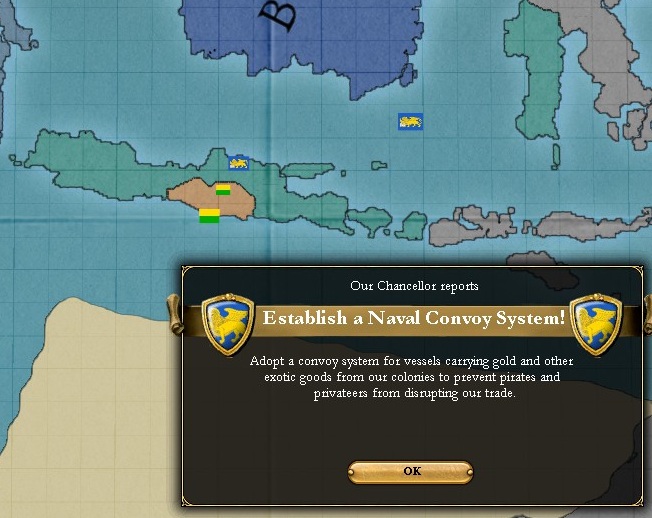
A naval convoy system is implemented in order to protect the valuable shipping generated by colonial industries.
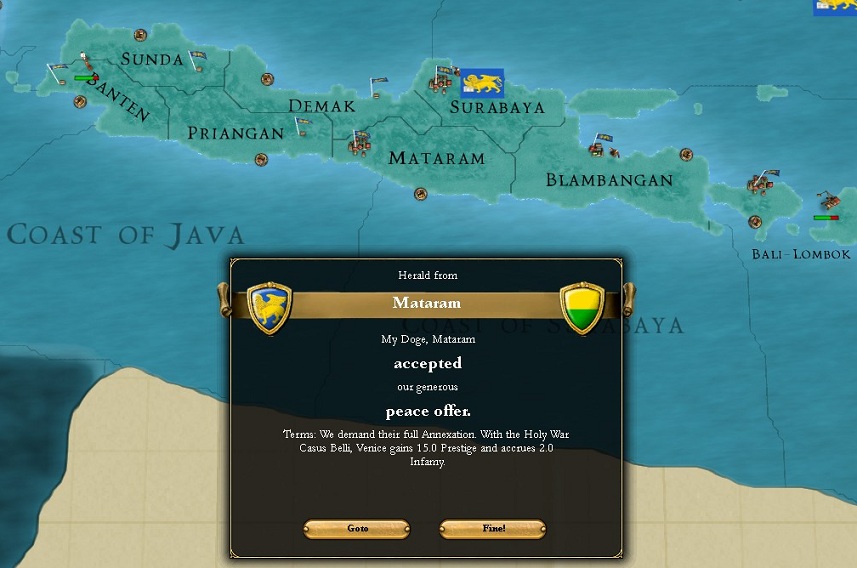
Mataram is fully annexed in 1632 and the entire island of Java is under Venetian control. Further Venetian colonist begin settling on Sulawesi and the Spice Islands further to the east.
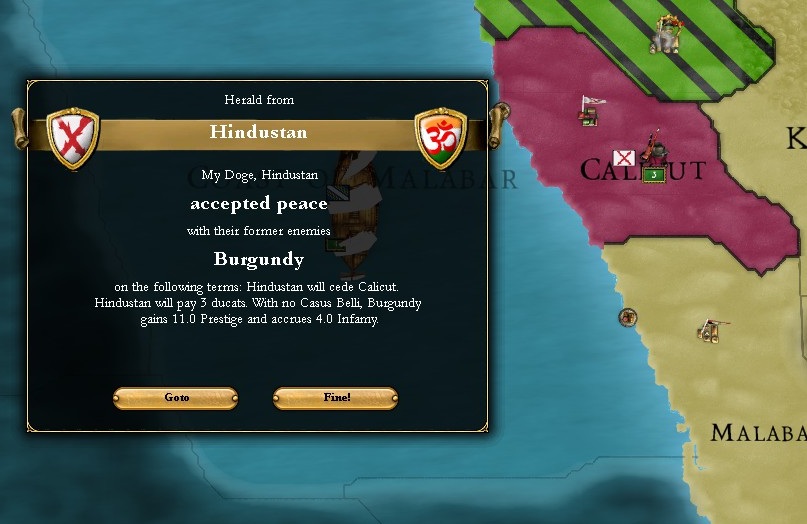
Burgundy displays its own colonial ambitions for India when it seizes Calicut from Hindustan.
The World in 1642
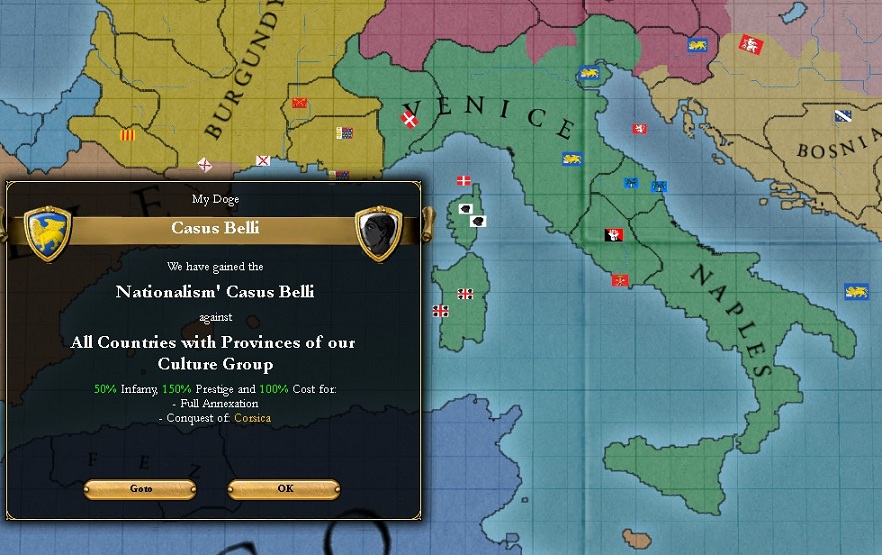
Nationalism begins to sweep across Europe in the mid 1600s. The Lombardi unification began early, but now similar movements are in the hearts and minds of the other cultural groups of Europe as well. The Italian people are spread across the entire Peninsula. Perhaps Venice could unite them all?
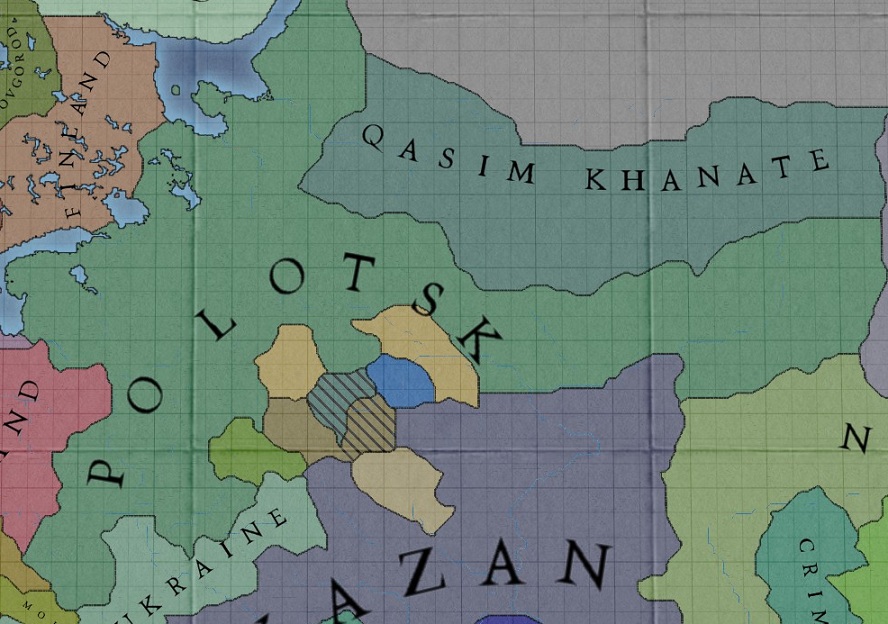
Polotsk has a good chance of creating an Islamic Russian Sultanate if it continues seeing success.
.jpg)
Seville has all but conquered all of the Iberian Peninsula. They hold all of the required provinces to form a new nation if they can hold onto them long enough become cores.
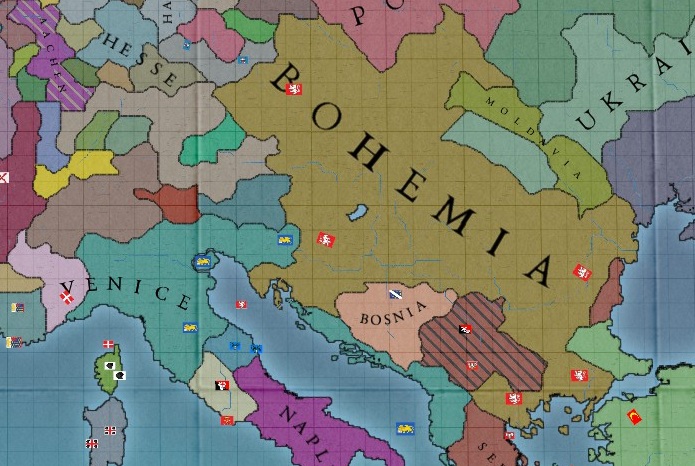
Venice's ally Bohemia has shattered Serbia, crippling the strongest Islamic power in the Balkans.
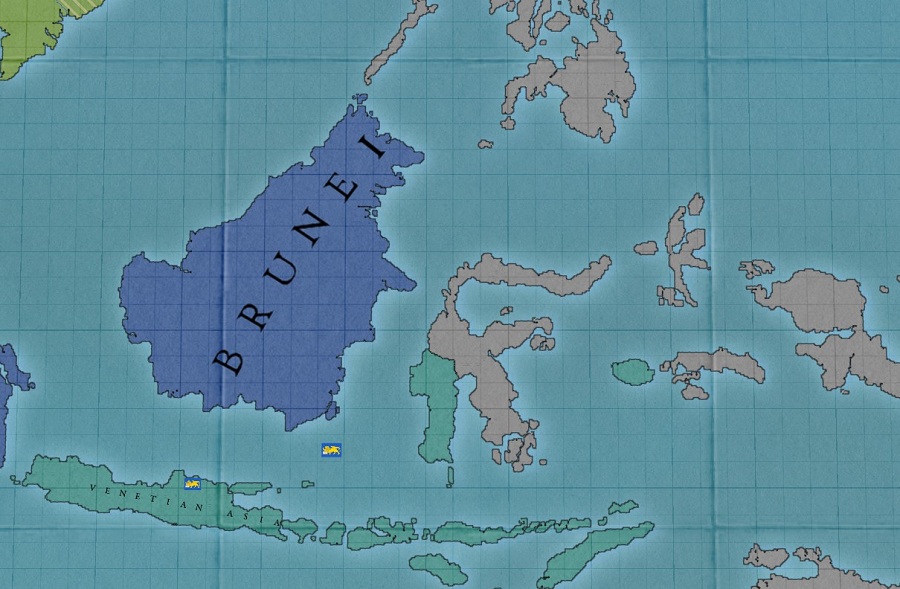
Venetian colonists continue to settle the islands of Southeast Asia without competition for the time being.
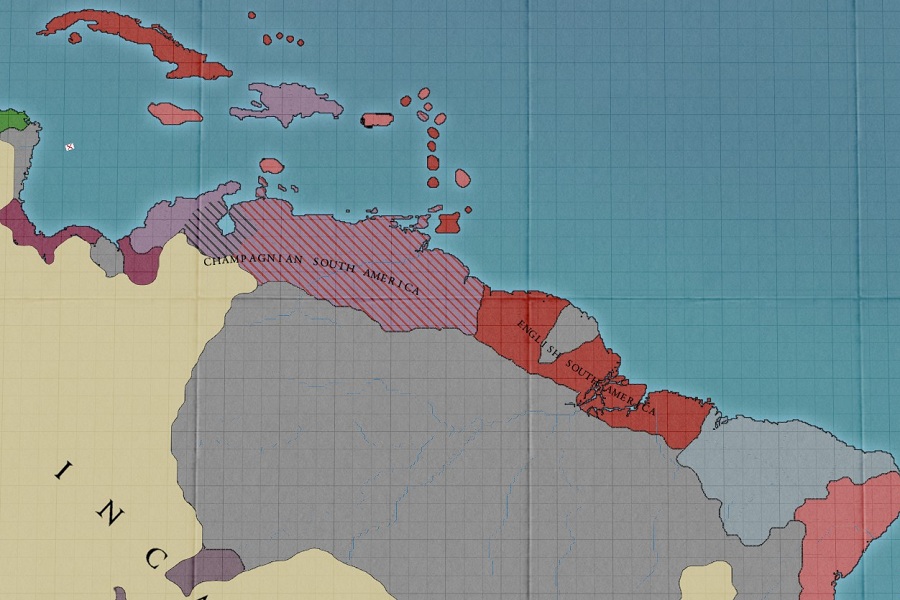
The northern coast of South America and the Caribbean are divided between England, Champagne, The Hansa, and do a lesser extent, Burgundy. Seville also maintains a few colonies as well.
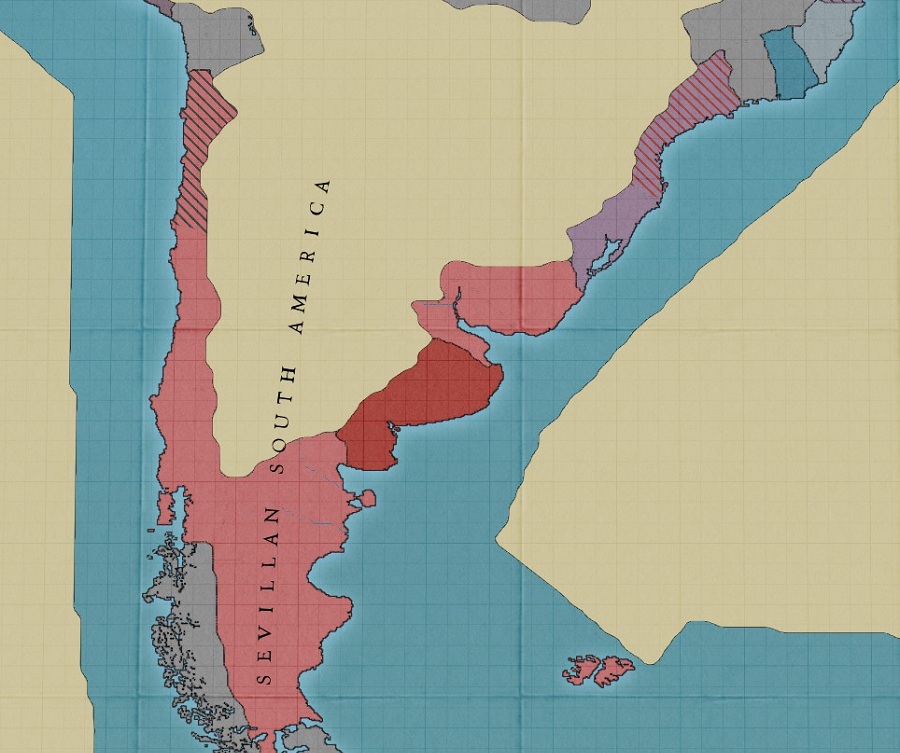
Seville's presence in South America is much more drastic, with vast stretches of land all under their control.
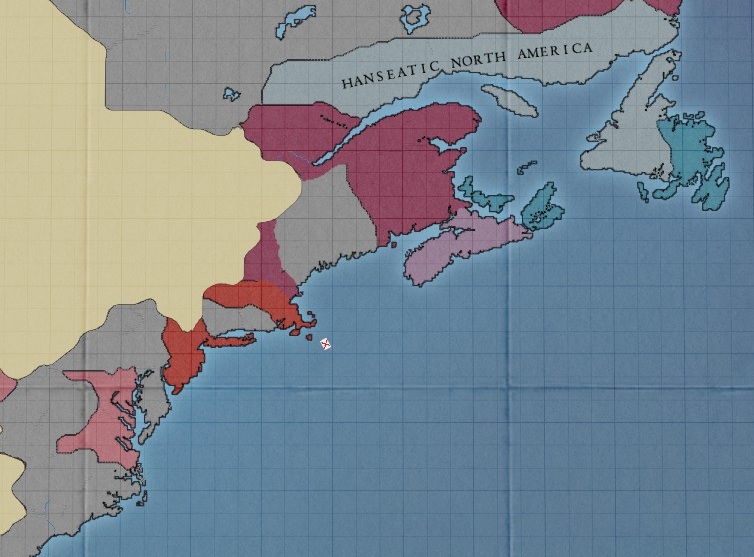
North America remains a troublesome area to colonize. The Hansa and Burgundy see the most success here for the time being.
There will be some issues presented to the council to vote on sometime on Thursday evening. Doge Lomellini is also considering petitions on certain issues from council members during this session. If a council member wishes to suggest a specific policy or course of action, they may do so now. One or two of the most appealing submissions will be included by Doge Lomellini in a collection of issues to be voted on by the council.
So, to be clear:
- Suggest clear ideas that can be voted on with a yes or no. ex: " Submission for consideration: We should invade The Ottomans, annex Constantinople, and then have a dance party."
- Don't vote on anything yet
- On Thursday evening, a few issues will be presented for a vote. One or two submissions may be included in this selection.